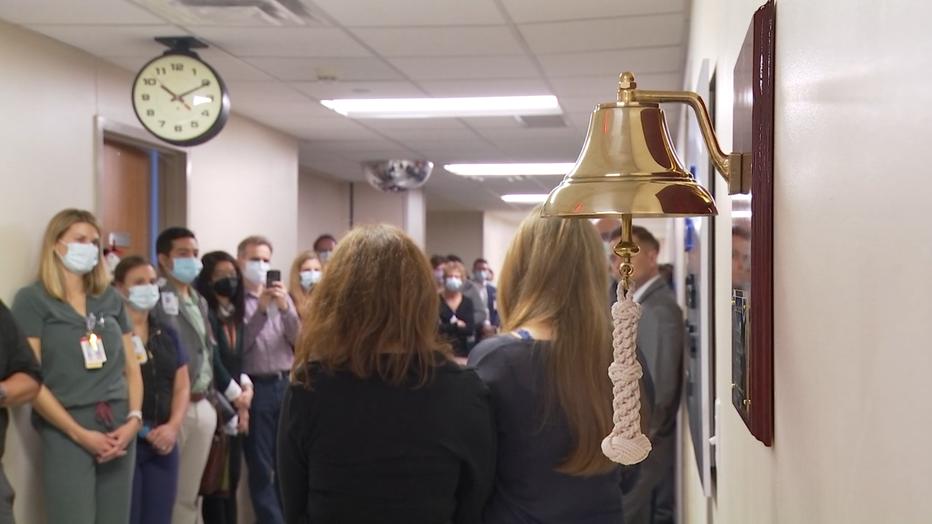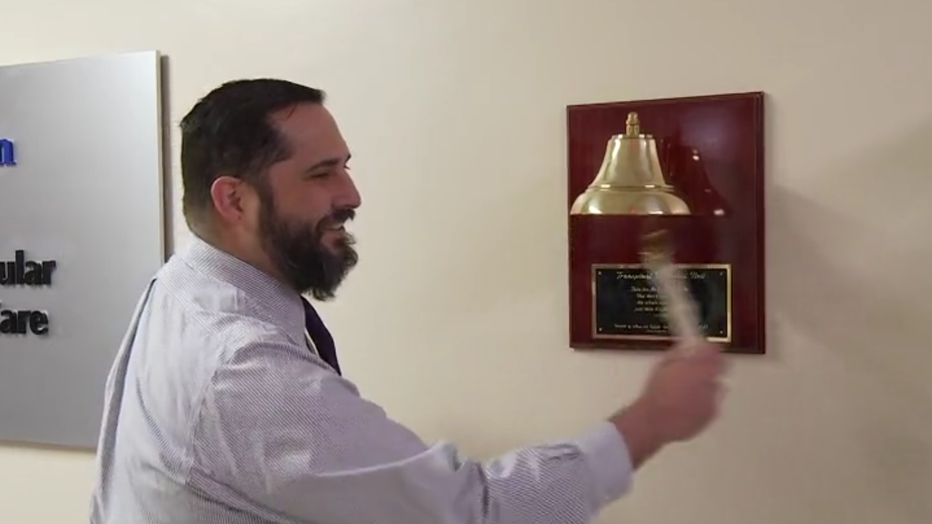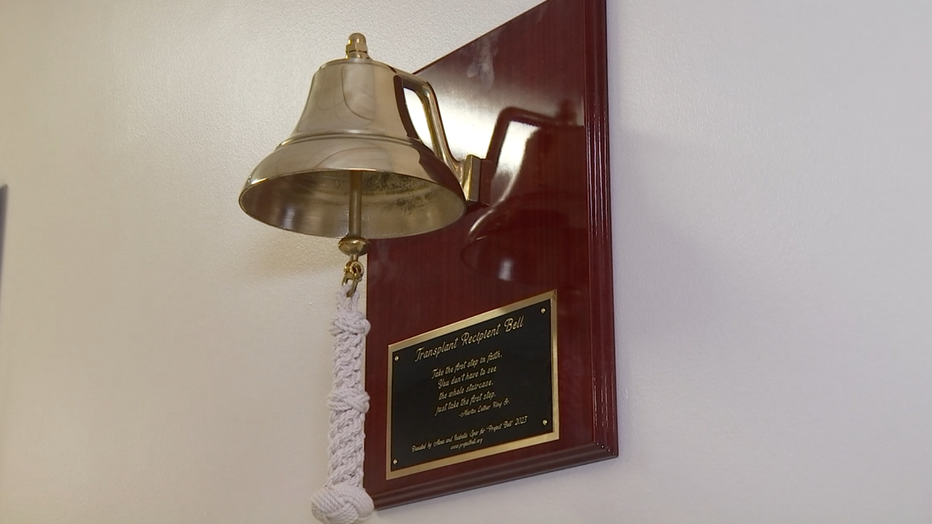Heart transplant survivors have new symbol of hope at Ascension Seton Medical Center

New symbol of hope for patients at Austin hospital
Heart transplant survivors at Ascension Seton in Austin got to ring the "New Beginning Bell" which represents a second chance at life. FOX 7 Austin's John Krinjak talks to the man who was first to ring that bell and the teen who started a movement to make the bell a reality.
AUSTIN, Texas - There’s a new symbol of hope for patients at Ascension Seton Medical Center in Austin. Starting Monday, heart transplant survivors got to ring the "New Beginning Bell"—representing a second chance at life.
For Raul Rangel, 39, and his family, being the first to ring the bell wasn’t just a photo op.
"It’s the start of a new life, the bell ringing. When you’re a kid, you go to school, school starts. But this time it’s like your life starts. Starts all over again. And I’m very fortunate," said Rangel.
A year ago, it was a much different story. Catching COVID led to a decline in his health, then last March he suffered a massive heart attack.
"I went to the emergency room in Round Rock, and woke up here at Austin Seton three weeks later," said Rangel.

He spent two months in the Ascension Seton ICU, with some very delicate surgeries, but what he ultimately needed was a new heart. Finally, this past November, a match.
"When I got the heart, it was just an amazing feeling, how I felt health-wise immediately afterwards," said Rangel.
"To see him on the other side with his daughters and family and wife around him, it touches our heart," said William Kessler, surgical director of heart transplant at Ascension Seton Medical Center.
In the months and years ahead, many more will ring the bell—a sign of hope thanks to the nonprofit Project Bell, founded by Alexa Spar, 16, and her sister Isabella.

Spar got the idea when her mother, Wendy Jeshion, was hospitalized in Boston to remove a benign but life-threatening brain tumor. The hospital there had a bell that survivors would ring, a symbol that gave their family hope.
"We have dedicated the past six years to making sure that anyone who wants one will in fact have one," said Spar.
"By giving back I think it brought tremendous perspective to my girls. It really helped them," said Jeshion.
But doctors at Ascension Seton stress that these success stories are only possible thanks to people who sign up to give the gift of life.

"You can help up to 12 patients with just the donation of a single donor," said Kessler. "And it could end up helping your very own family."
It’s the reason Rangel is here today—looking forward to watching his three young daughters grow up.
"If you’re not an organ donor, I definitely suggest looking into that," said Rangel. "You can give life to so many people who are deserving."
If you’re interested in being an organ or tissue donor, you can register online.

